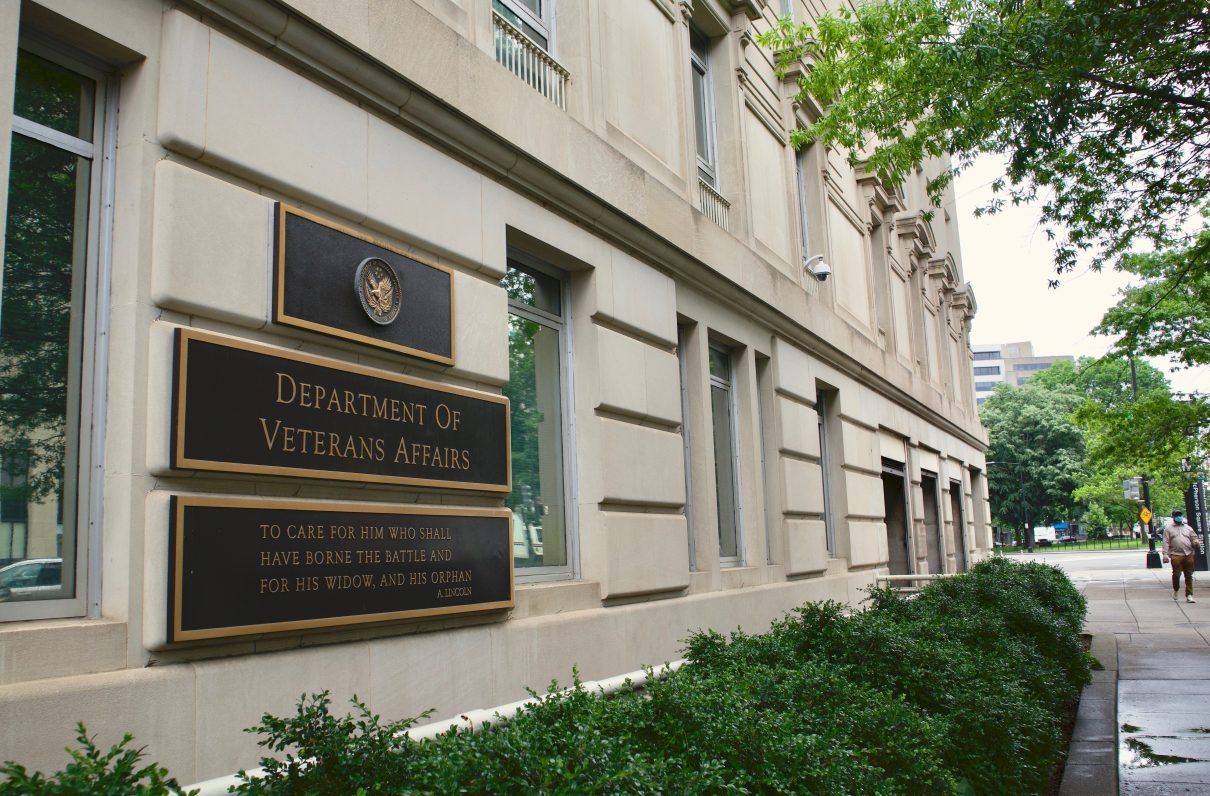By René Campos and Cory Titus
The largest VA budget request ever – $369 billion for FY 2025, 10% higher than the FY 2024 estimate – came March 11, five weeks after the often-neglected deadline for the White House to submit its annual budget proposal.
It dwarfs the $48 billion appropriated in FY 2001, before two decades of war in Iraq and Afghanistan. And it reflects the growing responsibilities of the department – $134 billion in discretionary funding (mostly for medical care) and $235 billion in mandatory spending, including the Cost of War Toxic Exposures Fund mandated by the Sergeant First Class Heath Robinson Honoring our Promise to Address Comprehensive Toxics (PACT) Act.
[TAKE ACTION: Urge Your Legislators to Support a Path for Long-Term Financial Stability and Security for Caregivers]
The proposed budget would allow the VA to deliver “the very best health care and benefits that this country has to offer,” VA Secretary Denis McDonough said in a press release announcing the request. But the proposal itself is far from enough: MOAA and fellow veterans service organizations (VSOs) will work with Congress and the administration to get this budget passed in a timely fashion and avoid the months of wasteful continuing resolutions that plagued this year’s budget cycle.
(MOAA also will continue its efforts to ensure Congress passes a package of stalled veterans’ legislation; read more about these efforts in a recap of recent testimony before a joint session of the House and Senate Veterans’ Affairs Committees)
Here’s a breakdown of some of the funding priorities included in the FY 2025 request, as well as how those priorities line up with MOAA’s advocacy work on behalf of those who serve and have served, and their families and survivors:
Toxic Exposure
Budget: The $24.5 billion proposed for the Toxic Exposures Fund reflects VA’s commitment to supporting the 2022 PACT Act, which represents long-needed, cross-generation reform in VA’s provision of health care and benefits to veterans exposed to environmental hazards in military service.
MOAA: We are closely monitoring how the VA implements the PACT Act, including decision-making for new presumptive conditions related to toxic exposures. The department has done an exceptional job making veterans aware of the expansion of care and benefits.
MOAA urges Congress to help the department with PACT Act infrastructure, workforce, and funding challenges, and we plan to publish a report along with Disabled American Veterans (DAV) in the coming months offering insights and recommendations to Congress and the VA for system improvements where decades-long delays are commonplace.
[RELATED: Millions of Vets Exposed to Toxins Will Be Eligible for VA Health Care on March 5]
Women Veterans
Budget: The VA expects to spend over $13 billion on caring for women veterans and a little over a billion dollars for women’s gender-specific care. About 775,000 women are enrolled in VA health care and are the fastest growing veteran population accessing VA care and benefits – 30% of the increase in VHA care in the last five years have been women. The budget targets specialty care and surgical services, reproductive services, maternal health care, and child care programs.
MOAA: We will continue our work with Congress to eliminate disparities in health care delivery and advance research programs for women, minority, and underserved veterans. Data collection on underserved populations must improve.
MOAA also will urge Congress to establish an official joint House and Senate Veterans’ Affairs Committee task force to represent the efforts of women, minority, underserved, and other vulnerable veteran populations, and urge the VA to expand health care and benefits for survivors of military sexual trauma.
[RELATED: More Veterans Could Go to DoD Medical Sites to Get VA Health Care]
Health Care Delivery
Budget: $112 billion of the FY 2025 request would fund inpatient, outpatient, VHA’s Whole Health initiative, mental health, and long-term care services, along with facility maintenance and infrastructure improvements.
MOAA: Along with supporting these efforts, MOAA will work with Congress to modernize VHA’s workforce and facility infrastructure – critical components of improving veterans’ access to high-quality care. The Whole Health initiative – which provides a personalized health plan based on a veteran’s individual needs, to include associated programs like mental health and dental care – should be implemented uniformly.
We also will work with Congress and the VA to keep the department ahead of the ever-increasing demand for long-term care services, to include expansion of at-home care for more veterans, which can provide the veteran with the care they desire at a savings to the VA, in many instances. This type of care remains significantly limited at medical centers across the country.
Caregiver Support
Budget: The FY 2025 request includes $2.9 billion for the VA’s caregiver support program, up from the $2.4 billion enacted in FY 2024.
MOAA: We were early supporters of the legislation establishing the Program of Comprehensive Assistance for Family Caregivers (PCAFC) for post-9/11 veterans, as well as expansion and improvements to caregiver benefits and programs for veterans of all eras. MOAA continues to work closely with Congress, the VA, and stakeholders on respite care and other caregiver improvements, including funding and resources to support program and policy changes.
[RELATED: VA Recognized for Improving Surgical Care for Frail Veterans]
Now What?
Congress will pour over budget details and hold hearings with VA officials in the coming weeks to consider the department’s proposal. Passing appropriations legislation by Oct. 1 would avoid another series of harmful continuing resolutions.
Stay informed during this important funding debate by registering at MOAA’s Legislative Action Center, where you can urge Congress to support important legislation to help our veteran community. Find the latest on these priorities and others at MOAA’s Advocacy News page.
More Members Mean More Influence Over Our Health Care
Get involved and make sure your interests are addressed. Because the larger our voice is, the greater our impact will be.
